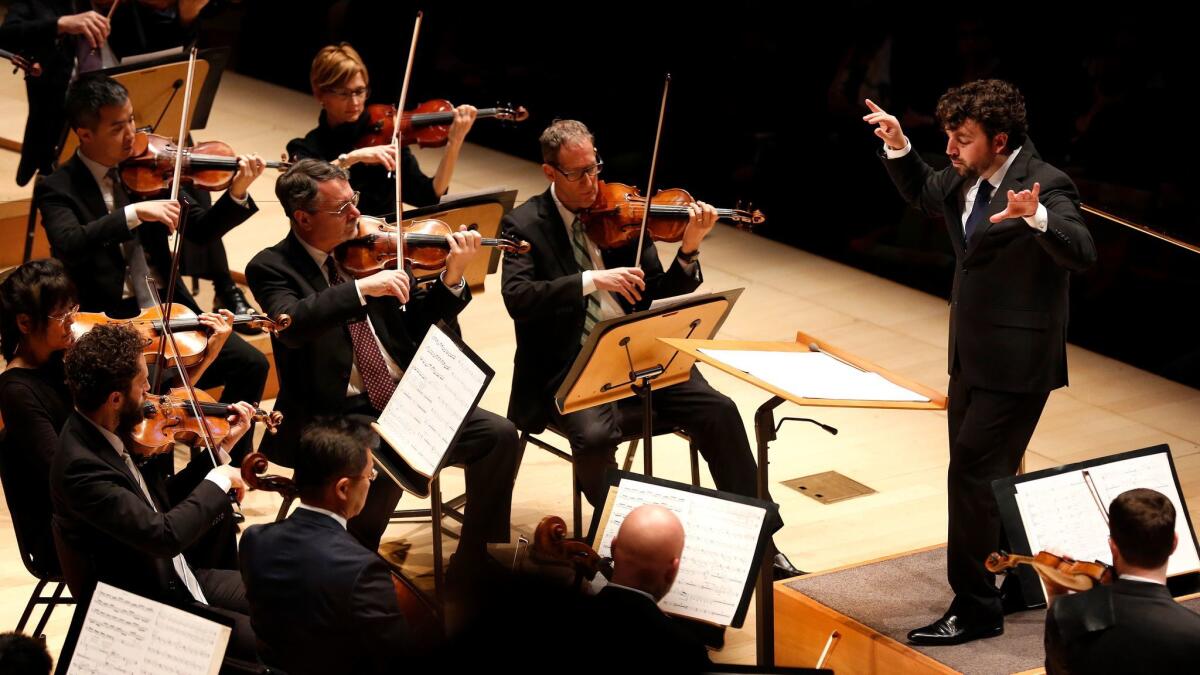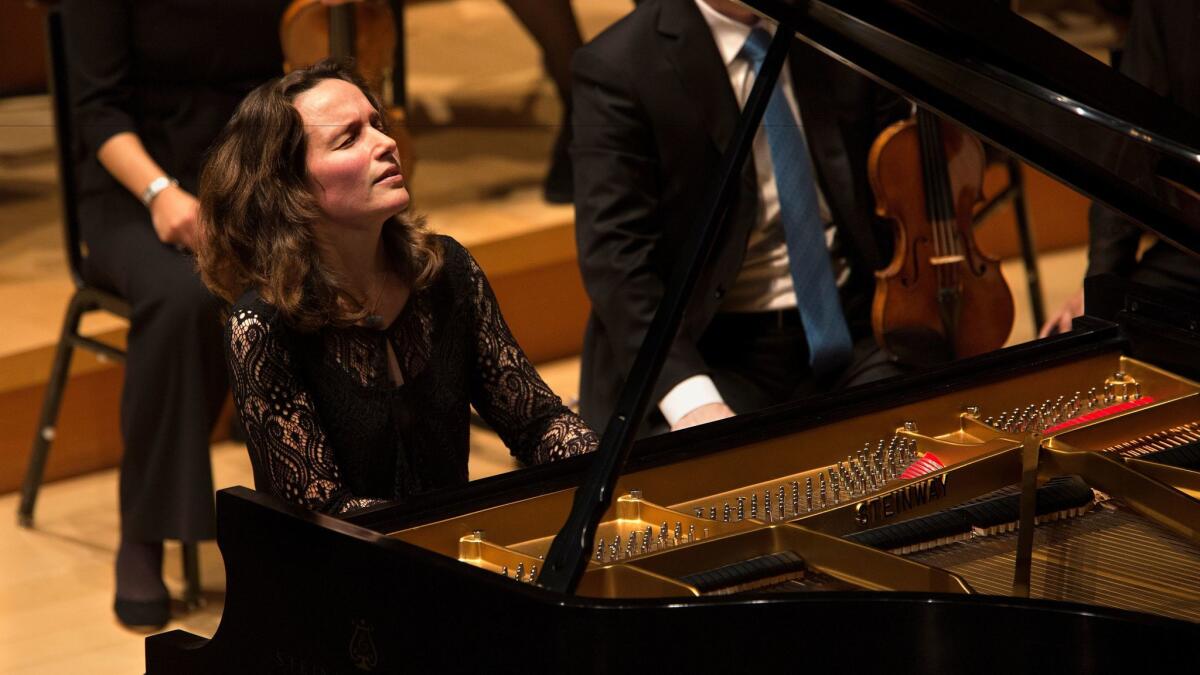Review: Race, justice and ‘Unchained’: L.A. Phil premieres new work by James Matheson

- Share via
If there was a newsmaker in the Los Angeles Philharmonic concerts conducted by James Gaffigan and mostly occupied by standard repertoire, it was the world premiere of an L.A. Phil commission, “Unchained,” by James Matheson.
On Saturday, before the second of three weekend performances, Matheson had a tale to tell at the pre-concert talk.
Twenty-one years ago, Matheson was a college student in Ithaca, N.Y., when he befriended a black man who bummed a cigarette off him. Matheson didn’t reveal the details of what followed, but the friendship somehow soured to the point where Matheson pressed charges against the man. The latter was jailed later on another charge.
Years later Matheson tracked down the man and found out that he is expected to be released (Monday, it turns out) from a mental health facility after 17 years in custody. That got Matheson thinking about race and our criminal justice system as he was writing this piece.
All of that is interesting to know, but it was not at all essential to assimilate Matheson’s colorful assembly of snatches and patches. “Unchained” has airy flute harmonies, brass passages that bite, sharp snaps of the strings against the fingerboards of the instruments, and pretty string tremelos that go on for some time until the seas suddenly become very rough. The gentle bonging of steel drums, representing segregated Trinidad in the West Indies, is sparingly applied.
The piece ends up in the air, but then a lot of new pieces do these days, as if composers are having trouble committing to definitive endings. Yet “Unchained,” played in the second half of the concert, didn’t wear out its welcome at a concise 10-½ minutes.
The new work was part of one of Gaffigan’s signature inverted programs, with the big work on top, tapering off after intermission with two smaller ones, the last an orchestral showpiece. He hasn’t exactly set off a trend among his colleagues in that respect, but that has given him a distinct profile.
The concert opened with the humungous Brahms Piano Concerto No. 2, which Hélène Grimaud tackled. A gusher of recordings of the two Brahms piano concertos have flowed forth lately for some reason. Deutsche Grammophon alone put out four of them in three years: one by Grimaud, one by Daniel Barenboim with Gustavo Dudamel in Berlin, and two by Maurizio Pollini. That makes it difficult for any to take hold.

Grimaud’s performance showed growth since her recording. Her Brahms 2 has become an appealing blend of grace, judicious pedaling, somewhat swifter pacing, and just enough sparingly-applied power. Gaffigan and the Philharmonic complemented her with smooth, clear textures and good swaying rhythm in the second movement. It was refreshing to walk away not feeling overstuffed by a heavy serving of Germanic red meat and dumplings.
The showpiece at the end was the Suite No. 2 from Ravel’s “Daphnis and Chloé,” which Gaffigan and the L.A. Phil dispatched with visceral bursts of thrill-ride power and the accustomed brilliance of their soloists. The acoustics of Walt Disney Concert Hall did the rest.
SIGN UP for the free Essential Arts & Culture newsletter »

The Los Angeles Philharmonic’s YOLA holds a 10th anniversary tour with stops in Northridge, Visalia, Fresno and Oakland.
Follow The Times’ arts team @culturemonster.
ALSO
Why it took two women to write ‘Balls,’ the opera about Billie Jean King’s ‘Battle of the Sexes’
L.A. Opera’s 30-year-old ‘Salome’ is back, and not a kid anymore
More to Read
The biggest entertainment stories
Get our big stories about Hollywood, film, television, music, arts, culture and more right in your inbox as soon as they publish.
You may occasionally receive promotional content from the Los Angeles Times.










